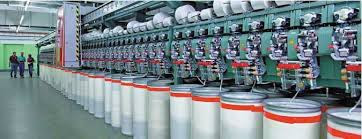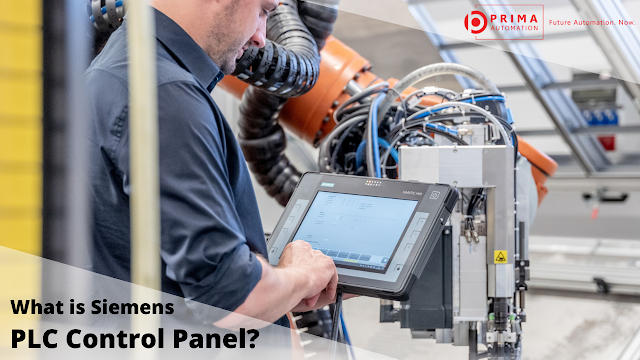How Can Smart Electrical Control Panels Enhance Industrial Automation?
Industrial automation has undergone a profound transformation in recent years, driven by advancements in technology. At the heart of this revolution lies the smart electrical control panel, a pivotal component that orchestrates and controls complex manufacturing and industrial processes. These intelligent control panels have revolutionized the industrial landscape, offering a multitude of benefits that enhance efficiency, productivity, safety, and cost-effectiveness. In this article, we will explore how smart electrical control panels are reshaping the world of industrial automation, paving the way for a more sophisticated and interconnected future.
1. Real-time Monitoring and Remote Control:
One of the primary benefits smart electrical control panel manufacturers point out is their ability to provide real-time monitoring and remote control capabilities. Traditionally, industrial operators had to be physically present on the factory floor to oversee operations. However, with the integration of sensors, Internet of Things (IoT) technology, and robust connectivity options, these panels can collect and transmit data from various points in the industrial process. Engineers and operators can access this data remotely through user-friendly interfaces, allowing them to monitor equipment status, environmental conditions, and production metrics in real time.
This capability is a game-changer for industrial automation as it reduces the need for constant physical presence on the factory floor, allowing personnel to make data-driven decisions from anywhere in the world. Whether it's adjusting machinery settings, diagnosing issues, or making critical decisions, real-time monitoring and remote control empower industrial professionals to respond swiftly and effectively, thereby reducing downtime and optimizing overall efficiency.
2. Predictive Maintenance:
Smart electrical control panels bring the power of predictive maintenance to the forefront of industrial operations. By harnessing the capabilities of data analytics and machine learning algorithms, these panels can predict when machinery and equipment are likely to fail. They achieve this by continuously monitoring performance metrics, analyzing historical data, and detecting anomalies or patterns that indicate potential breakdowns.
This proactive approach to maintenance is transformative for industries that rely on continuous production. Instead of waiting for equipment to fail and then scheduling repairs, smart control panels enable companies to plan maintenance during scheduled downtime, minimizing unplanned stoppages and their associated costs. Additionally, predictive maintenance extends the lifespan of machinery, reduces emergency repair expenses, and optimizes resource allocation.
3. Energy Efficiency and Cost Savings:
Energy consumption is a significant concern for industrial facilities, both in terms of environmental impact and operating costs. Smart electrical control panels play a pivotal role in optimizing energy usage within these environments. They can regulate the operation of equipment based on demand, adjust lighting and heating systems, and implement energy-saving algorithms.
Moreover, these panels provide detailed energy consumption data, allowing companies to identify areas of inefficiency and implement strategies to reduce energy costs. Over time, these energy-saving measures can translate into substantial cost savings and contribute to sustainability goals. By monitoring energy consumption in real time and making data-driven adjustments, companies can minimize waste, operate more sustainably, and enhance their bottom line.
4. Enhanced Safety and Compliance:
Safety is a top priority in industrial settings, where machinery and processes can pose significant risks to workers and equipment. Smart control panels significantly enhance safety protocols through various mechanisms. They can monitor safety sensors and interlocks, ensuring that machinery operates within predefined safety parameters. In the event of a safety breach or malfunction, these panels can trigger automatic shutdowns or initiate emergency procedures to prevent accidents and protect personnel.
Furthermore, smart control panels help companies maintain compliance with stringent regulatory standards. They provide detailed records of equipment operation, safety measures, and maintenance activities, which can be invaluable during audits and inspections. This not only ensures the safety of the workforce but also safeguards the organization against regulatory fines and legal liabilities.
5. Scalability and Flexibility:
Traditional control panels often face limitations when it comes to scalability and adaptability. They rely heavily on physical components and intricate wiring, making it challenging to scale up operations or adapt to changing production requirements without significant investments in hardware and infrastructure.
Smart electrical control panels, however, offer a level of scalability and flexibility that was previously unattainable. With software-based control and virtualization, these panels can be easily modified or expanded to accommodate evolving industrial processes. Whether a company is scaling up production, reconfiguring production lines, or integrating new machinery, smart control panels can adapt swiftly without the need for extensive rewiring or costly hardware upgrades. This agility is particularly valuable in industries with rapidly changing production needs, enabling companies to stay competitive and responsive to market demands.
6. Integration with Industrial IoT (IIoT) Devices:
The rise of the Industrial Internet of Things (IIoT) has revolutionized industrial automation, and smart electrical control panels are a natural gateway for integrating IoT devices. These panels serve as the central hub for connecting and controlling a diverse range of IoT devices, including sensors, actuators, cameras, and more.
This seamless integration with IoT devices enables companies to harness the power of big data and analytics. By collecting and analyzing data from these devices, smart control panels provide a holistic view of the industrial process. This data-driven approach empowers organizations to optimize operations, improve quality control, and make informed decisions that can enhance efficiency and productivity.
7. Improved Data Visualization and Analytics:
Smart control panels are equipped with advanced data visualization tools that offer operators and engineers a clear and intuitive view of the industrial process. These interfaces provide real-time data visualization, making it easier to monitor critical parameters, identify trends, and respond to anomalies promptly.
In addition to real-time monitoring, smart control panels offer robust data analytics capabilities. By leveraging advanced algorithms and historical data, these panels can generate insights into production performance, equipment efficiency, and process optimization. These insights can guide decision-making, drive process improvements, and contribute to overall operational excellence.
8. Enhanced Human-Machine Interaction:
The user interfaces of smart electrical control panels have evolved significantly, making them more intuitive and user-friendly. Operators and engineers can interact with these panels through touchscreens, tablets, or even mobile devices, enabling them to access critical information and control processes with ease.
These enhanced human-machine interfaces offer features such as drag-and-drop functionality, 3D visualization, and intuitive graphics, simplifying the operation of complex machinery and processes. This not only reduces the learning curve for operators but also minimizes the risk of human errors, thereby improving overall system reliability and efficiency.
9. Condition-Based Monitoring and Optimization:
Smart control panels excel in condition-based monitoring, allowing companies to assess the health of equipment and machinery continuously. By analyzing data from sensors and other sources, these panels can detect changes in equipment behavior, such as vibrations, temperature fluctuations, or unusual sounds, which may indicate impending issues.
Condition-based monitoring enables companies to take a proactive approach to maintenance and optimization. When deviations from normal operating conditions are detected, smart control panels can trigger alerts or automated responses, such as adjusting equipment settings, notifying maintenance teams, or ordering replacement parts. This real-time monitoring and response capability helps minimize downtime and improve asset longevity.
10. Enhanced Data Security:
As industrial automation becomes increasingly interconnected and reliant on data exchange, data security is of paramount importance. Smart electrical control panels incorporate robust security measures to protect sensitive industrial data. These measures may include secure communication protocols, data encryption, user authentication, and role-based access control.
Moreover, with the rise of cyber threats targeting industrial systems, smart control panels are designed with cybersecurity in mind. They undergo rigorous testing to ensure they can withstand cyberattacks and protect critical infrastructure from unauthorized access and data breaches.




Comments
Post a Comment